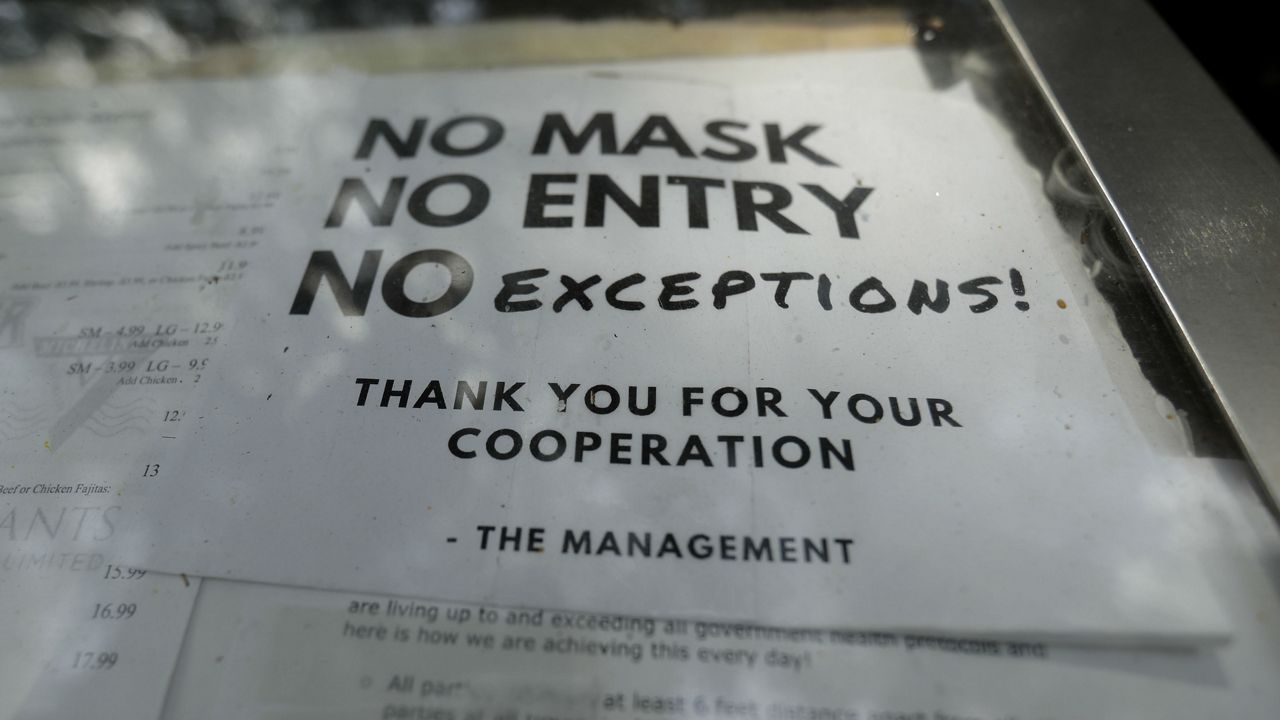Study: COVID Conspiracy Theory Believers Are Less Likely to Wear Masks

NATIONWIDE – A new study by the Annenberg Public Policy Center has taken a look at the relationship between those who believe in COVID-19 conspiracy theories and their willingness to take preventative measures known to stop the spread of the novel coronavirus.
What You Need To Know
- Study surveyed participants in March and July
- Asked about their willingness to take preventative measures
- Also analyzed political leanings and where they get their news
- Compared to if they believed in COVID conspiracy theories
According to the study, researchers asked participants a series of questions about whether they were taking preventative measures like washing hands, keeping distance from others, or whether they’d be willing to get a vaccine. They were also asked whether they believe certain conspiracy theories about the origins of the virus, vaccine-related conspiracy theories, what their political leanings were, and where they get their news.
The participants were surveyed twice, once in March at the beginning of the pandemic’s start in the U.S. and again in July.
Researchers say in the report that those who were found to believe in the conspiracy theories were less likely to take preventative measures, even after getting more guidance from health officials.
RELATED | Global Coronavirus Death Toll Surpasses 1 Million
When the questions were first asked in March, before the CDC started recommending the public wear masks, only a small portion of the participants said they wore masks. While more reported to wear them when asked again in July, researchers say those that reportedly also believed in the conspiracy theories were still less likely to wear them.
Another change between the first and second round of questions were more participants said they did not want to get vaccinated for the coronavirus.
“Here again, we found that the increase in hesitancy was predicted by earlier endorsement of conspiracy beliefs. These findings suggest that conspiracy beliefs play a causal role in reducing the embrace of public health recommendations to control the pandemic,” read the report.
The study also analyzed who were more likely to believe the conspiracy theories based on their media consumption and race/age demographics.
MORE COVERAGE | CDC Releases Coronavirus Thanksgiving Guidance
Those who watched conservative media were more likely to say they believed the conspiracy theories and those who watched liberal media were more likely to see the coronavirus as a national threat.
“Individuals younger in age and lower in income and education were more likely to hold conspiracy beliefs about the origins and seriousness of the pandemic. Non-white respondents also were more likely to hold such beliefs,” read the report.
Researchers say it’s good news that older adults are less likely to believe conspiracy theories and are more likely to take preventative measures because scientists have shown they’re more susceptible to negative health affects caused by the virus.
They also describe the finding that people of color are more likely to believe the conspiracy theories as “worrisome,” pointing to additional research showing that minority groups are disproportionately dying of the coronavirus.
*** This article has been archived for your research. The original version from Spectrum News can be found here ***


